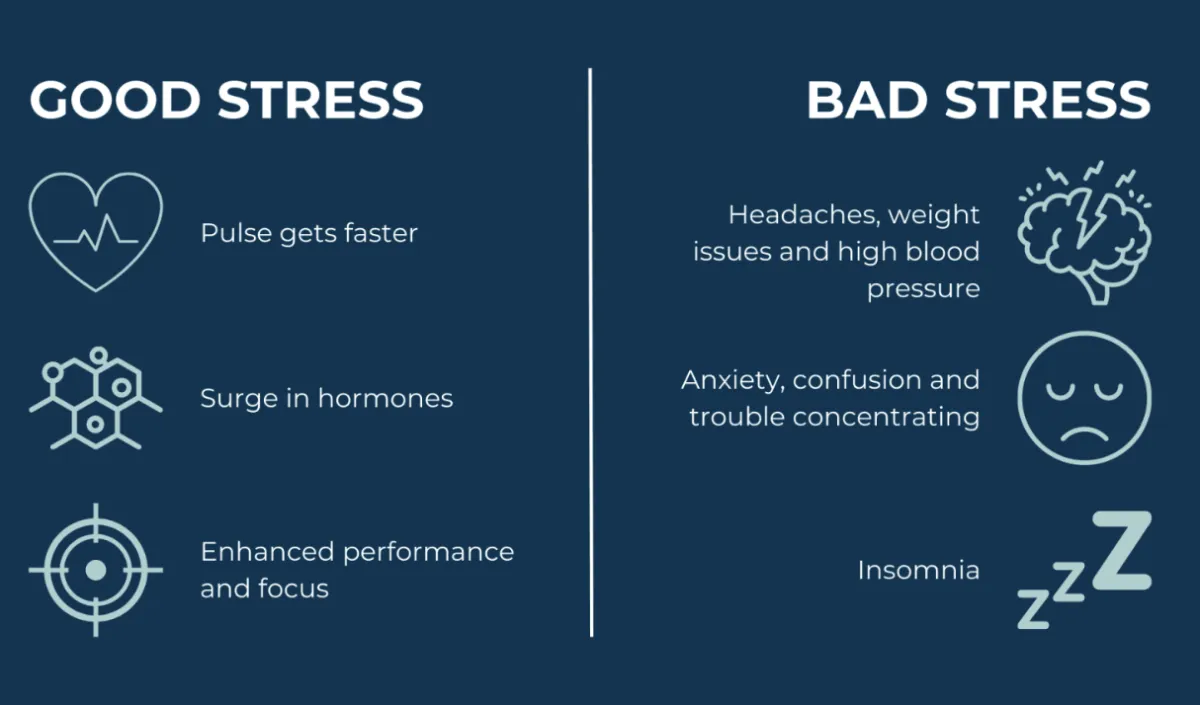
Turns Out, You’re Wired for This
Last week, the subject of one of those obstacle course races came up. You know the type: mud pits, fire jumps, climbing over walls....
I commented that it seems life has become so comfortable that we now pay to simulate stress — like the race where people used to swim under live wires.
That race’s gone now… someone got electrocuted.....
Despite hearing that stress is bad for your health, maybe we instinctively know that some stress can benefit the body and brain.
Stress is your body’s built-in response to challenge.
When something stressful happens—like a deadline or a tough conversation—your brain signals your body to release hormones that make you more alert and energized.
Your heart races, your breathing quickens, and you feel keyed up. That’s not just anxiety. Your body is preparing you to act.
People feel at least some stress on up to 90% of their days. It’s part of being human.
Chronic stress or stress resulting from a traumatic event is different. Long-term, unrelenting stress can wear you down and increase your risk for serious health issues.
But short-term stress, like speaking to a room full of people, is a different story.
It can sharpen your thinking, boost your immune system, and help you become more emotionally resilient.
There’s a name for this concept: hormesis.
It’s the idea that small doses of something challenging can make us stronger. Just as lifting weights breaks down muscle to rebuild it stronger,train your body and mind to bounce back better.
This “sweet spot” of stress is what helps build resilience. It’s like training for life’s curveballs. Too little stress, and we may not develop the tools to cope with adversity. Too much, and we can get overwhelmed.
Somewhere in the middle is a space where growth happens.
It’s not just about how much stress you experience—it’s how you respondto it.
People who view stress as something they can learn and grow from tend to handle stress more effectively.
On the other hand, seeing stress as purely harmful can make things worse. Trying to eliminate every ounce of it might be the most stressful part of all!
Interestingly, the healthiest people aren’t the ones who never get rattled. They’re the ones who respond a little, but not too much, letting themselves feel it without spiraling.
They let emotions alert them to what needs attention without letting those emotions take the wheel.
Emotions alert us when something needs attention. Ignoring them completely is like turning off a smoke alarm instead of checking the stove.
Practices like mindfulness, movement, deep breathing, or just talking to someone you trust can help you navigate stress without getting overwhelmed.
You can’t always control what life throws at you, but you can choose how to respond to it.
Stress isn’t always a sign that something’s wrong. Sometimes, it’s a sign you’re growing into something stronger.
That mindset—the belief that you can adapt, grow, and keep going—is one of the most powerful forms of health there is.